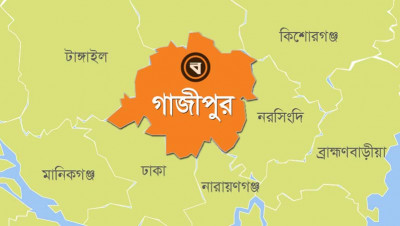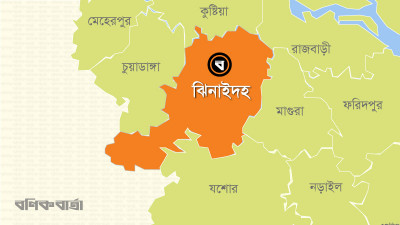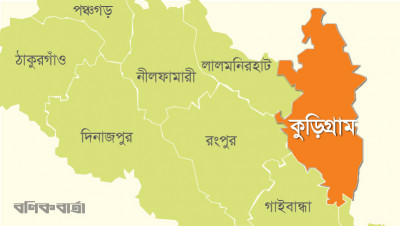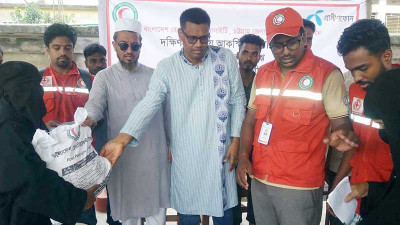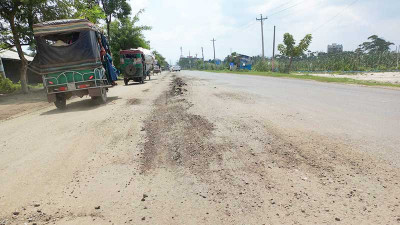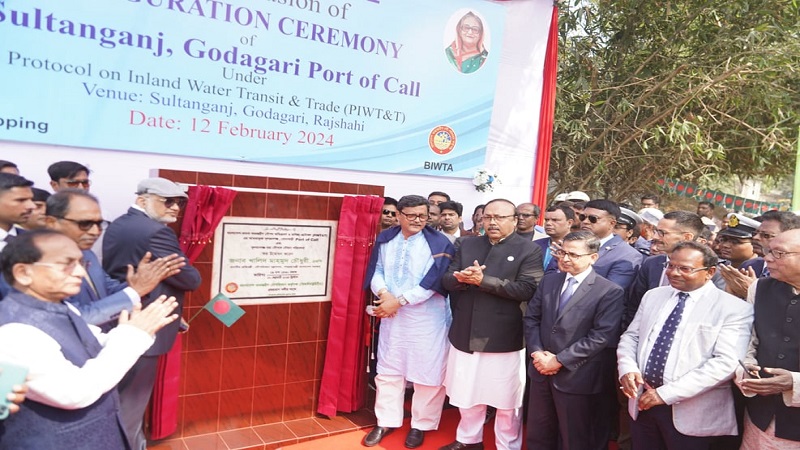 BSS photo
BSS photo The river trade route between Rajshahi in Bangladesh and Murshidabad in India was opened on Monday aiming at strengthening trade and commerce between the two neighbors.
Sultanganj port under Godagari upazila in Rajshahi has been opened with the main thrust to strengthen trade and economic ties between Bangladesh and India.
With this development, initially the river port was connected to the Maya port of Murshidabad via Padma River.
The river port has been launched under the Protocol on Inland Water Transit and Trade (PIWTT) as part of the trade agreement between Bangladesh and India.
The protocol was signed in 1972 and renewed on March 31, 2020, to ensure both countries benefit from their waterways for trade and commerce.
State Minister for Shipping Khalid Mahmud Chowdhury, accompanied by Rajshahi City Corporation Mayor AHM Khairuzzaman Liton and Indian High Commissioner to Bangladesh, declared the river trade route open.
Among others, Omar Faruk Chowdhury, MP, Asaduzzaman Asad, MP, Abdul Wadud, MP, Abul Kalam, MP, and Chairman of Bangladesh Inland Water Transport Authority (BIWTA) Commodore Arif Ahmed Mostafa were present
They also addressed a public meeting at the same area to mark the opening ceremony.
Speaking on the occasion, State Minister Chowdhury said the port will contribute a lot towards curtailing transport cost of the imported goods to a greater extent.
Apart from infusing dynamism into Rajshahi's economy the trade route will generate employment opportunities.
Mayor Liton said the distance of this route is only 17 kilometres. During the dry season, 200-300 tonnes of goods can be transported in each cargo. During monsoon, transportation of goods will be a bit difficult due to the strong current in the river.
A small ship carrying two tonnes of cotton departed from Sultanpur port to Maya port to mark the inauguration, with the return cargo from India to be confirmed in the next couple of days.
The river port will primarily be used to import stones, fly ash, stones, coal, fruits, and spices from India, as well as to export jute and garments from Bangladesh.
It will generate job opportunities and lower the prices of different commodities due to the low transportation costs when the river port becomes fully operational.
He also said the government has plans to extend the river route to Mongla port and conduct joint capital dredging for the river's navigability by India and Bangladesh.
A 500-tonne capacity barge in the river is equivalent to 25 trucks on the road, and barges use less fuel oil. Prices of goods are expected to fall.

